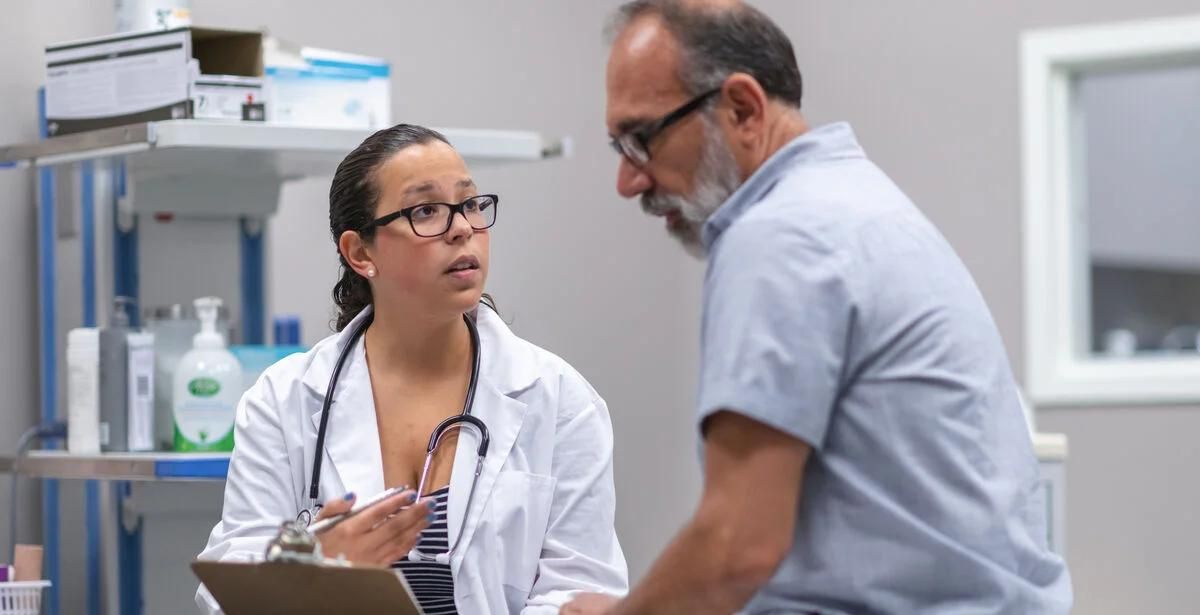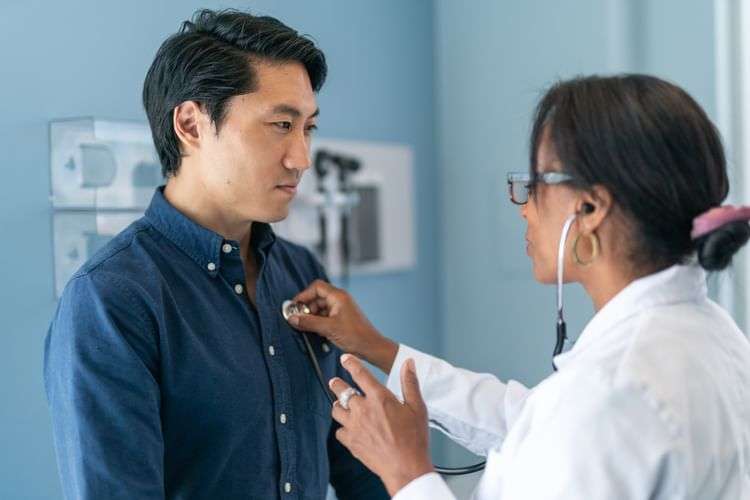The Complete Guide to Nurse Practitioner Clinicals

If you are considering advancing your nursing career by pursuing a nurse practitioner degree or certificate program, you may be wondering about nurse practitioner clinicals. Regardless of your educational background, a nurse practitioner program will require both traditional academic studies and practical, hands-on application of skills in the form of nurse practitioner clinicals. You may be surprised to learn that many schools leave the process of securing clinical sites up to the student, particularly with advanced practice programs.
The task of identifying and securing a site for your clinical rotation that meets the needs of your nurse practitioner program is time-consuming. The process can take weeks or months, and any miscommunications can result in unneeded stress and delays in your progress.
Wilkes University offers a superior approach to nurse practitioner clinicals by providing complimentary clinical placement services for all of our nurse practitioner programs. The clinical placement team at Wilkes University will work with you, assisting with the task of finding and securing your clinical placement and preceptor so that you can focus on what matters most—your education.
What is Nursing Clinical Placement?
Nurse practitioner clinicals bridge the academic and practical worlds of nursing by allowing you to put your newly learned knowledge into a hands-on experience. Similar to an internship, a clinical gets you out of the online classroom and into healthcare facilities, where you will assume the role of a nurse practitioner under the guidance of a preceptor.
During the clinical experience, your preceptor will guide you in developing your clinical skills and ensure you are progressing towards course and program required competencies. Through regular meetings, you and your preceptor will receive support and remain in close contact with your clinical faculty.
Every school approaches nurse practitioner clinical placement differently, but there are two main objectives:
- Locate a healthcare facility that meets the unique requirements of your nurse practitioner program.
- Identify a preceptor that has the required education and credentials.
What is the Purpose of Clinical Placement Services?
By offering clinical placement services for its online nursing students, Wilkes University eases your burden. This approach allows you to be confident that your clinicals will be completed on schedule in a quality healthcare site.
You will collaborate with your assigned clinical placement coordinator to secure clinical sites and preceptors. Well-versed in regulations, the clinical placement coordinator ensures the site complies with university and national guidelines.
At Wilkes University, nurse practitioner clinical placement is a complimentary part of the services we provide to you as an online student. Using a series of checklists, the clinical placement team will provide information about dress code, professional expectations, and verify you have met the requirements for clinical placement.

What is a Preceptor?
Preceptors are experienced nurse practitioners or physicians who are a vital component of the nurse practitioner clinical placement experience. They will:
- Familiarize you with the working environment—physical layout, facility policies, equipment, and technology.
- Closely monitor your work for safety and facility compliance.
- Facilitate your learning—linking nursing theory and practice—to meet identified learning objectives.
- Provide constructive feedback designed to highlight strengths as well as areas for growth.
- Review your program paperwork and co-sign clinical documentation.
Each preceptor-student relationship is unique, with the preceptor guiding you along your educational journey. Your preceptor’s knowledge and experience can help answer your questions and identify your career path.
What Requirements Must Someone Meet to be a Preceptor?
Different schools may have different requirements for preceptors. At Wilkes, the requirements for a nurse practitioner to be a preceptor are as follows:
- Unencumbered license to practice as an Advanced Practice Registered Nurse (APRN) in the state of practice
- Eligible to practice in an advanced practice role as deemed appropriate by the state’s Board of Nursing
- Board-certified as a nurse practitioner or APRN
- Functioning as an advanced practice nurse in a primary care or approved specialty practice setting
- Committed to providing quality patient encounters
Physicians can also be nurse practitioner preceptors. The requirements for a physician to be an NP preceptor for placement are:
- Unencumbered license to practice medicine in the state where the preceptorship will take place
- Engaged in an active practice directly affiliated with the rotation
- Committed to providing quality patient encounters
How Do I Secure a Clinical Placement Site and Preceptor?
Each healthcare facility will have its unique operations. Securing a site for clinical placement means you must be familiar with how each facility functions.
Researching Potential Clinical Placement Sites
To identify potential clinical placement sites, you will need to:
- Research available types of clinical settings within each health agency.
- Determine whether the facility works with students.
- Understand the facility’s requirements for student clinical placements.
- Become familiar with the facility’s onboarding process.
This information has to be brought back to the school so they can vet and approve. Additionally, an affiliation agreement between the school and agency has to be in place.
As part of the complimentary nurse practitioner clinical placement services provided by Wilkes, our placement team will identify quality placement sites within your local community so you don’t have to worry about identifying sites on your own. However, the more active you are in the placement site identification process, the better chance you will have of securing a site that matches your preferences.
Finding a Preceptor
After determining that a clinical site meets the needs of your nurse practitioner program, you will need to select a preceptor. Nursing managers or the clinical liaison in charge of education at the facility will be the starting point for determining which practitioners will be able to meet your individual needs. Information about preceptor education and credentials, including licensure and certification, will need to be presented to (and approved by) the university program.
Doing these tasks on your own may be easier if you have worked at the healthcare site; however, some facilities have specific regulations for employees and clinical placement.
What Are the Challenges of Nursing Clinical Placement?
Finding the right fit for clinical placement can be challenging. According to an article by the AACN in 2019, over 80,000 qualified baccalaureate and graduate nursing students were turned away from nursing schools, with two-thirds of the respondents identifying the shortage of preceptors as a primary reason.
Nurse practitioner clinical placement can prove to be tedious and difficult. You will need to research and ask questions to ensure the site and preceptor are the right fit. Questions you may need to ask and some challenges that you may encounter include:
- Sites - Does the clinical site accept students, and does the site meet the requirements for your nursing degree?
- Site Requirements - Are there any special requirements for students working at a specific site?
- Contacts - Who will you need to contact?
- Communication - Will the contacts you are reaching out to respond to a student from outside their organization or have timely communications?
- Time - Researching possible clinical sites, knowing specific site requirements, and communicating with the facility are time-consuming activities.
The shortage of preceptors for nurse practitioner clinicals may be particularly challenging due to the smaller pool of available preceptors. Consider whether your program allows working with other practitioners, such as physicians, to expand your possibilities.

How Does Wilkes Approach Clinical Placement for Its Online Nursing Programs?
Our clinical placement team strives to make your clinical experience seamless by utilizing collaboration and a standard work process, ensuring no detail is left out.
Services provided by the clinical placement team include:
- Site Selection - securing a quality healthcare site for nurse practitioner clinicals
- Coordination - communicating with the facility and identifying capacity to host nursing students for clinicals
- Requirements - understanding unique site requirements and making sure you have clinical clearance prior to starting your rotation
- Guideline Compliance - making sure the clinical sites and preceptors meet Wilkes University and national guidelines
What are the Benefits of Wilkes’ Approach to Clinical Placement?
The clinical placement team at Wilkes University overcomeshandles the challenges of securing your nurse practitioner clinical placement site, providing you with a seamless experience.
Benefits for Nurse Practitioner Students
Working with your clinical placement coordinator will allow you to:
- Focus on your coursework, knowing that your placement team is attending to your clinical needs.
- Be confident that the clinical site meets your nurse practitioner program’s requirements.
- Have a smooth clinical placement experience.
- Collaborate with and provide referrals from your local community to increase your chances of securing a clinical site near you.
Learn more about nurse practitioner programs at Wilkes:
- Psychiatric/Mental Health Nurse Practitioner
- Family Nurse Practitioner
- Adult-Gerontology Primary Care Nurse Practitioner
Benefits for Preceptors
You may be surprised to find that most preceptors volunteer their time or receive minimal compensation. Some preceptors enjoy sharing their knowledge, shaping new practitioners, and using the experience for their own career development. Your preceptor will be confident knowing that you:
- Are a nurse practitioner student in an accredited program.
- Have met all site and clinical clearance requirements.
- Will come to clinicals prepared, understanding both the dress code and professional expectations.
- Will come to clinicals with identified learning objectives and core competencies.
What Can I Expect During Nursing Clinicals?
Nurse practitioner clinical experiences can differ vastly due to the variety of healthcare environments, from hospitals to clinics to schools to long-term care facilities. Experiencing different sites will deepen your knowledge and perspective as a nurse and help you develop a focus for your career.
You will work one-on-one with a preceptor who will guide you through your clinical practice to meet your objective goals. Initially, you will observe your preceptor’s workflow and then gradually transition to assuming the work yourself while being supervised by your preceptor. This requires excellent communication skills and being open to feedback from your preceptor.
Your preceptor will encourage your critical thinking and share insightful knowledge about nursing practice. With your preceptor, you will work on your ability to engage with patients, perform physical assessments and chart in the healthcare record.
You will arrange a clinical schedule with your preceptor in which you may be working up to 12-hour shifts. The nurse practitioner programs at Wilkes University provide flexibility to meet the demands of your clinical experience.

Nurse Practitioner Programs with Clinical Placement at Wilkes University
The nurse practitioner career path is an exciting one with many opportunities for professional development. Wilkes University offers numerous online nurse practitioner programs to fit a variety of career paths and education levels.
- Master of Science in Nursing (MSN)
- Family Nurse Practitioner (FNP)
- Adult-Gerontology Primary Care Nurse Practitioner (AGPCNP)
- Psychiatric/Mental Health Nurse Practitioner (PMHNP)
- Post-Graduate/APRN Certificate
Nurse practitioner clinicals combine theory and practice, providing experiential education and ongoing support from an experienced preceptor. Get started by learning more about Wilkes’ nurse practitioner programs and clinical placement services. Get your free program guide for more information.




